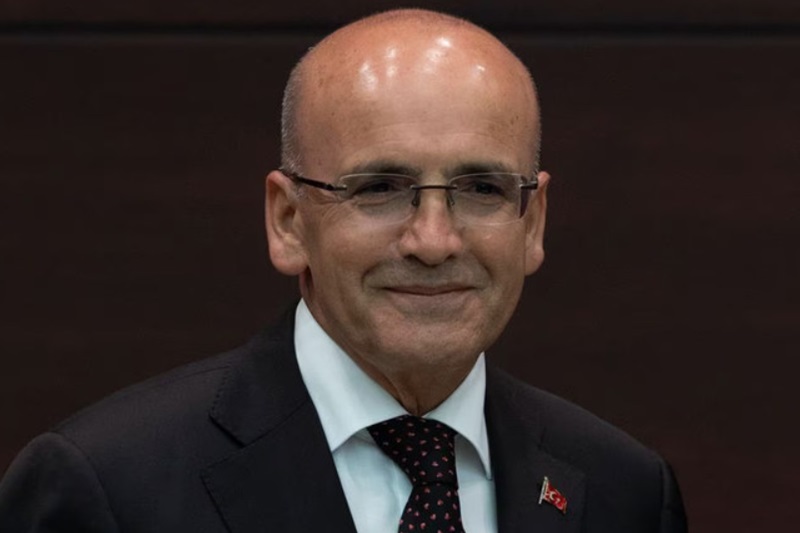Mehmet Şimşek's 2025 Vision: A Firm Commitment to Combat Inflation
Treasury and Finance Minister Mehmet Şimşek made significant statements regarding the new era in the economy after the Economic Coordination Council meeting held in Şanlıurfa.
Minister Şimşek emphasized their determination to combat inflation and detailed the steps to be taken toward this goal.
In his remarks, Şimşek stated that the inflation rate, which was around 64% at the end of 2022, reached approximately 65% in 2023, and the Central Bank anticipates closing the year in the range of 44-45%. He indicated that inflation will continue to decrease by 2025, highlighting four key factors affecting this process. He mentioned that monetary policy would continue to contribute to the disinflationary process and that this effect would persist for 18 months. Additionally, they aim to reduce the budget deficit from 5% to 3%, which would also have a positive effect on inflation.
Şimşek expressed their sensitivity regarding administered and directed prices, noting that natural gas and electricity price increases are around 38% in 2024, with a similar approach expected in 2025. He stated that the excise duty adjustments on fuel and tobacco products would be made in a way that does not jeopardize inflation targets. He anticipates an increase in the excise duty in the domestic Producer Price Index and emphasized that this rate is low enough to ensure the safety of the inflation figures to be disclosed at the end of the year.
Addressing the topic of reforms, Şimşek mentioned that they prioritize supply-side disinflation policies. He announced strong support from the Ministry of Agriculture to increase food supply, focusing on topics such as irrigation, land consolidation, food logistics, and the establishment of specialized food zones. He noted that social housing projects are an important part of supply-side policies and that steps will be taken to alleviate rent pressures.
Şimşek underscored the importance of transformation in the energy sector, stating that energy imports are 1.5 times Turkey's current account deficit, and that reducing dependence is necessary to decrease this deficit. He expressed that improving energy supply is feasible through initiatives from the Ministry of Industry and Technology. He also asserted that monopolization will not be allowed on a sectoral and product basis, and they will promote competition to enhance efficiency and innovation. He highlighted the importance of updating the Customs Union with the European Union to include agriculture, services, and public procurements.
Regarding the exit from the FX-protected deposits (KKM) and credit policies, Şimşek stated that the Central Bank managed the exit process from KKM without negatively impacting the markets, with KKM balances decreasing from $144 billion to the range of $30-35 billion. He indicated that the removal of corporate tax exemptions and the introduction of withholding tax for individuals have decreased KKM's attractiveness. He asserted that monetary policy would continue within a strong framework and that financial regulations would positively contribute to the disinflation process.
In his statements on credit policies, Şimşek mentioned that there are no credit restrictions in areas such as agriculture, export, investment, and tradesmen, and that they provide interest subsidies through the budget in these areas. He noted that a re-discount credit of 531 billion lira has been provided for exports, and they plan to allocate 160 billion TL in support to farmers in 2024. He stated that the government would cover 50% of the interest rates for tradesmen credits but would not subsidize consumer loans. He emphasized that as inflation decreases, access to financing will become easier, and global conditions will become supportive.


